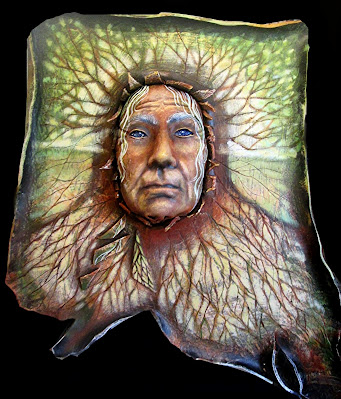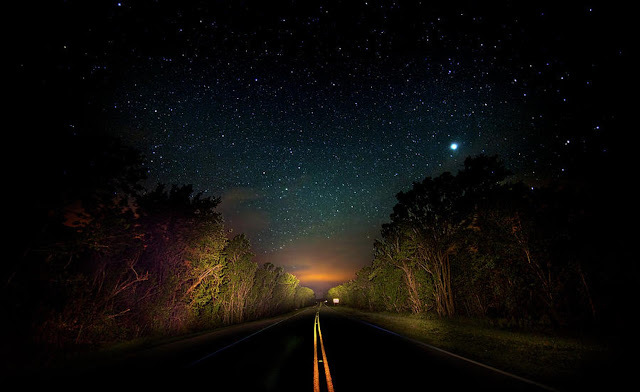"The further we distance ourselves from the spell of the present, explored by our senses, the harder it will be to understand and protect nature’s precarious balance, let alone the balance of our own human nature."DIANE ACKERMAN
What will happen, as the time of computer implants looms in our evolutionary future........will people talk and tweet to each other in some kind of informational/vibrational code, freed of such unhygienic nuances as facial expressions, vocalizations, physical gestures, smells, auras? What about empathy, not just for the human world, but the sensory world of nature?
I ran across a great article by DIANE ACKERMAN, thanks to my good friend Joyce, that expressed these thoughts so well.........I can't resist excerpting from it here.
Are We Living in Sensory Overload or Sensory Poverty?
By DIANE ACKERMANIT was a spring morning in upstate New York, one so cold the ground squeaked loudly underfoot as sharp-finned ice crystals rubbed together. The trees looked like gloved hands, fingers frozen open. A crow veered overhead, then landed. As snow flurries began, it leapt into the air, wings aslant, catching the flakes to drink. Or maybe just for fun, since crows can be mighty playful.
Another life form curved into sight down the street: a girl laughing down at her gloveless fingers which were texting on some hand-held device. This sight is so common that it no longer surprises me, though strolling in a large park one day I was startled by how many people were walking without looking up, or walking in a myopic daze while talking on their “cells,” as we say in shorthand, as if spoken words were paddling through the body from one saltwater lagoon to another.
As a species, we’ve somehow survived large and small ice ages, genetic bottlenecks, plagues, world wars and all manner of natural disasters, but I sometimes wonder if we’ll survive our own ingenuity. At first glance, it seems as if we may be living in sensory overload. The new technology, for all its boons, also bedevils us with alluring distractors, cyberbullies, thought-nabbers, calm-frayers, and a spiky wad of miscellaneous news. Some days it feels like we’re drowning in a twittering bog of information.
But, at exactly the same time, we’re living in sensory poverty, learning about the world without experiencing it up close, right here, right now, in all its messy, majestic, riotous detail. The further we distance ourselves from the spell of the present, explored by our senses, the harder it will be to understand and protect nature’s precarious balance, let alone the balance of our own human nature.
Strip the brain of too much feedback from the senses and life not only feels poorer, but learning grows less reliable. I’m certainly not opposed to digital technology, whose graces I daily enjoy and rely on in so many ways. But I worry about our virtual blinders. We’re losing track of our senses, and spending less and less time experiencing the world firsthand. At some medical schools, it’s even possible for future doctors to attend virtual anatomy classes, in which they can dissect a body by computer — minus that whole smelly, fleshy, disturbing human element.
When all is said and done, we exist only in relation to the world, and our senses evolved as scouts who bridge that divide and provide volumes of information, warnings and rewards. But they don’t report everything. Or even most things. We’d collapse from sheer exhaustion. They filter experience, so that the brain isn’t swamped by so many stimuli that it can’t focus on what may be lifesaving. Some of their expertise comes with the genetic suit, but most of it must be learned, updated and refined, through the fine art of focusing deeply, in the present, through the senses. Once you’ve held a ball, turning it in your hands, you need only see another ball to remember the feel of roundness. Strip the brain of too much feedback from the senses and life not only feels poorer, but learning grows less reliable. Subtract the subtle physical sensations, and you lose a wealth of problem-solving and lifesaving details.
As an antidote I wish schools would teach the value of cultivating presence. As people complain more and more these days, attention spans are growing shorter, and we’ve begun living in attention blinks. More social than ever before, we’re spending less time alone with our thoughts, and even less relating to other animals and nature. Too often we’re missing in action, brain busy, working or playing indoors, while completely unaware of the world around us.
One solution is to spend a few minutes every day just paying close attention to some facet of nature. A bonus is that the process will be refreshing. When a sense of presence steals up the bones, one enters a mental state where needling worries soften, careers slow their cantering, and the imaginary line between us and the rest of nature dissolves. Then for whole moments one may see nothing but the flaky trunk of a paper-birch tree with its papyrus-like bark. Or, indoors, watch how a vase full of tulips, whose genes have traveled eons and silk roads, arch their spumoni-colored ruffles and nod gently by an open window.
On the periodic table of the heart, somewhere between wonderon and unattainium, lies presence, which one doesn’t so much take as engage in, like a romance, and without which one can live just fine, but not thrive.















